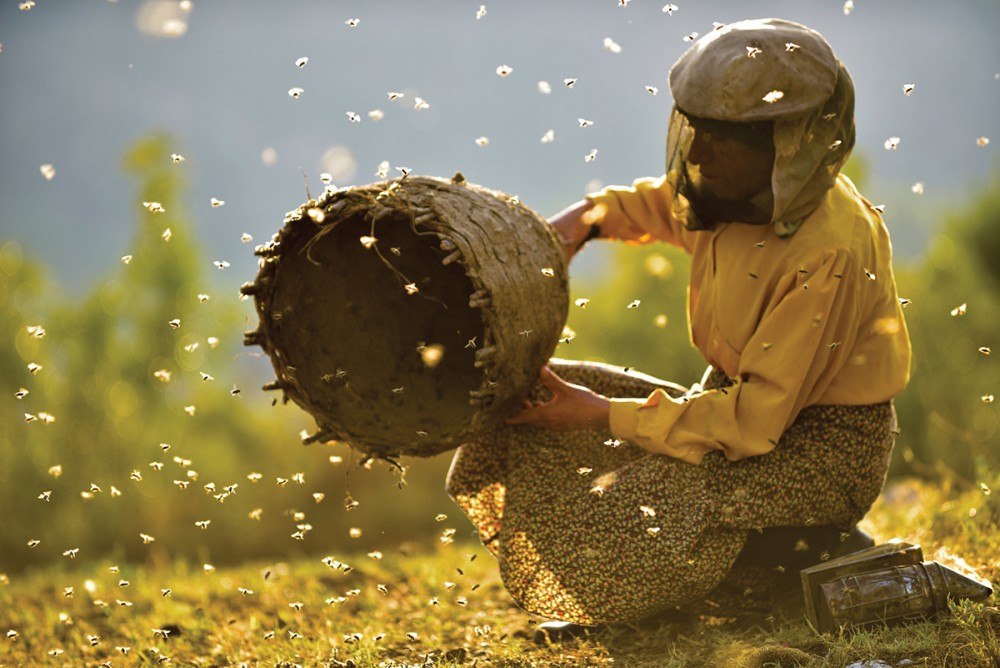Honeyland transcends language and location
A Macedonian beekeeper’s ordinary, mythical life

Honeyland (directed by Tamara Kotevska and Ljubomir Stefanov) is a documentary film that follows the life of a beekeeper, Hatidze Muratova, who lives with her elderly mother in an otherwise abandoned village in rural Macedonia. Nominated for Oscars for both best documentary feature and best foreign film, it is a visual masterpiece, introducing its viewers to an incredible, particular life and transforming that life, through its visual medium, into a myth of our moment.
When we meet Hatidze, she seems like a figure out of time. She dresses in peasant skirts and well-worn scarves. The small house she shares with her elderly mother is earth-lined and lacks running water, electricity, and indoor plumbing. She spends her days crossing a magnificent natural landscape—her body the only human figure in sight—to tend her wild beehives, which are nestled in high mountain crags or in stone ruins from the region’s Greek and Roman past.
She is not, of course, actually out of time but an anomaly in a recognizable wider modern world. Her location in that world is slowly revealed as airplanes crisscross the sky above her and when she takes a bus to a much larger city to sell her honey in open-air markets. She haggles and jokes with the vendors, discussing the importance of cross-cultural understanding among Bosnians, Albanians, and Turks (she’s the latter). These are hints of the geopolitical realities of the region that no doubt contributed to the emptying of her village, but they are never discussed. She buys bananas, a tangible reminder of the forces of globalization that link her honey to a system of worldwide exchange, and hair dye, which she scrutinizes for exactly the right shade of chestnut brown.





